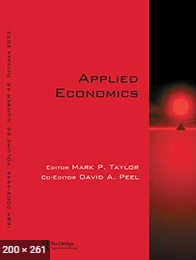
We investigate the divergence in risk preferences between individuals exposed to background risk and those who are not, using a field experiment conducted in Arequipa, Peru. Arequipa, a city located in close proximity to the El Misti volcano, is constantly threatened by lahars – mudflows originating from this volcano. Our study combines experimenta l assessments of risk tolerance and patience with a targeted survey designed to assess residents’ awareness of their exposure to risks. Our primary finding reveals that residents living in hazard-prone areas exhibit higher levels of risk tolerance compared to their counterparts in safer zones. To address concerns about causality, we employ instrumental variable (IV) regressions and conduct stability analyses of coefficients. We subsequently discuss our findings in the context of the literature on preference adaptation.
